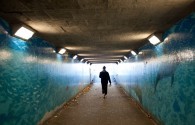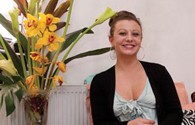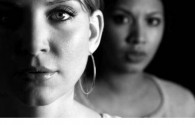Lisa Dando
Job description: Director at Brighton Women's Centre
Areas of interest: Housing and homelessness – services for women with complex needs, Domestic abuse, Families and children – including relationships, Substance use, Women involved in the criminal justice system, Mental health and wellbeing, Childhood trauma – including being in care or childhood abuse, Employment and skills, Improving support for women involved in prostitution
Lisa Dando's Recent Activity
"Inspire adopts a whole system approach working with women at all stages of involvement in the Criminal Justice System from early intervention, through points of arrest, community order, in-reach, release and continuing Through The Gate support. Inspire is a partnership project with Brighton Women’s Centre as the lead agency. The other partner organisations are: Rise (DV), Threshold (Mental Health), Brighton Oasis Project (sex work) and Survivor’s Network (Rape Crisis). Inspire operates a one-stop with a multi-disciplinary team of co-located case workers. Women referred to Inspire are assessed by a caseworker and receive intensive 1-1 input where they are supported to address the structural challenges in their lives which have lead to their offending. Inspire is premised on a model of women centred positive psychology where we recognize that the multiple complex needs of our clients require asset based creative and innovative responses to reduce their offending and re-offending."
Reply To: Skills and Employment
"Inspire is a partnership project across five women’s organisations in Brighton with its central point of location at Brighton Women’s Centre. Inspire works with vulnerable women at all stages of involvement in the Criminal Justice System. The spectrum includes: early intervention identifying and supporting women away from crime as part of the national Liaison and Diversion scheme; providing community sentences for women on specified activity requirements; prison in-reach and community re-integration post release for women who have served less than a twelve month sentence.
http://www.womenscentre.org.uk/index.php?What_We_Do:Inspire_Project
Inspire offers practical and emotional support where women are empowered to address the multiple complex and interrelated needs that sit beneath their offending behaviour. Women who access Inspire have needs in at least four of the nine pathways highlighted in the Corston Report (2007). One of the strengths of the partnership is that women who come to Inspire are able to access a range of specialist support services and activities on-site. These include: family work; domestic and sexual violence; mental health; debt and benefit support; counselling; mentoring; drop-in; fare share (free food); alternative therapies; creative groups; employment support; parenting courses; anger management courses and Thinking Ahead 4 Women offending behaviour course.
A key issue for many Inspire clients is the lack of appropriate accommodation in Brighton. There is currently no women only hostel accommodation in the city. Without safe accommodation it is extremely challenging for women to address the many additional needs they face on a daily basis. Inspire adopts an evidenced based approach to working with vulnerable women recognising that women need to be listened to and need to believe they can change before they can benefit from practical support.
A recent snapshot of Inspire clients identified that from a cohort of 28 women surveyed, 20 (71%) had housing issues. The snapshot affirms concerns that often housing needs of vulnerable women are hidden from view. Of the 20 women who had housing need, 16% identified as rough sleepers while 32% were living with violent partners or in families where they feel unsafe. When women are in abusive relationships they are often isolated, which can in turn impact on their ability to engage with services. 21% of the women who are of no fixed abode (NFA) are sofa surfing, often swopping sex for a place to stay. Women can be caught between staying in an unsafe relationship or sleeping rough. Without appropriate women only supported accommodation in the city, women are trapped in a web of dangerous options regarding their accommodation, which in turn further impacts on their engagement with services and their ability to address their additional needs. 26% of the cohort identified that their housing was impacting on their ability to engage with services.
Women offenders often have multiple complex needs. In this snap shot 50% had at least three additional needs, with 26% having drug and alcohol issues and 47% having mental health issues. If women are to leave the criminal justice system it is imperative that their basic human need to be safely and securely accommodated is met so that they can start to address their additional needs. Housing needs and a history of trauma and abuse are just two of the many complex and interrelated needs that Inspire clients so often demonstrate as Lily’s story highlights.
CASE STUDY
Lily was referred to Inspire on specified activity requirement to attend for 20 sessions. She had a history of offences and presented with multiple needs. She was suffering from PTSD as a result of a long history of abuse and trauma: she was lonely, isolated and alcohol dependent. Her current relationship was very abusive and, as a result of, numerous police call outs to her address, her tenancy was also at risk. Lily’s partner would follow her to appointments and try to discourage her attendance at appointments, potentially putting her in breach of her order and facing a custodial sentence. Lily was referred to MARAC due to the high level of abuse she was experiencing and her case worker supported her to cope with the multiple appointments by arranging for workers to be introduced to her during Inspire sessions. The consistent and non-judgmental support of her Inspire worker helped Lily to make the decision to leave her relationship. At this point she was about to lose her accommodation and her case-worker helped her address the practicalities involved in keeping her tenancy. By the end of her order, Lily had ended the abusive relationship, had stopped drinking, the anti-social behaviour case against Lily had been closed, she was receiving compliments from her neighbours and had started voluntary work in a local charity shop.
What Lily said about Inspire: “I was being understood, being heard and for the first time in a very long time. I was not left on my own to deal with the mountain of problems that arise. I felt empowered to get through this terrible time and Inspire encouraged me to take a very long hard look at myself and recognise that I had much healing to accomplish”."
Reply To: Women, homelessness and the criminal justice system




